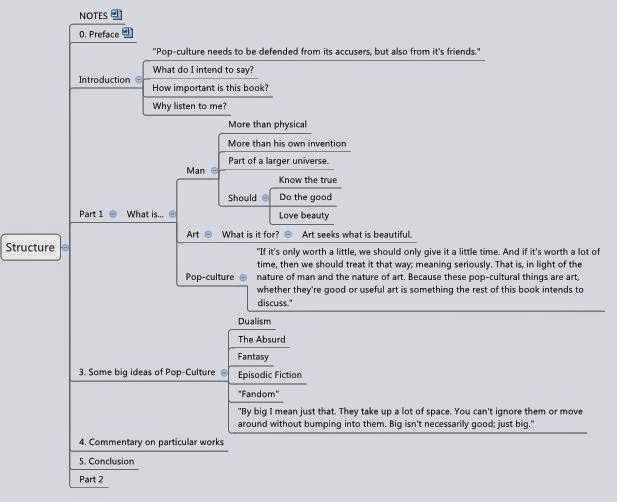Some Thoughts
As I mention
below, I've decided to start my reading with Aristotle and St. Thomas Aquinas,
and the reason why is very important to how I think about the book and
pop-culture itself. So important that I think I’m going to have to say more
about it in the Preface (but maybe it can go in the Introduction).
 |
| Also, look at him. Aristotle's so handsome. He must be right. |
In his book,
Aristotle for Everyone, Mortimer
Adler says this:
“In an effort to understand nature,
society, and man, Aristotle began where everyone should begin with what he
already knew in the light of his ordinary, commonplace experience. Beginning
there, his thinking used notions that all of us possess, not because we were
taught them in school, but because they are the common stock of human thought
about anything and everything.
We sometimes refer to these notions
as our common sense about things. They are notions that we have formed as a
result of the common experience we have in the course of our daily
lives experiences we have without any effort of inquiry on our part,
experiences we all have simply because we are awake and conscious. In addition,
these common notions are notions we are able to express in the common words we
employ in everyday speech.”
Adler, Mortimer J. (1997-06-01). Aristotle for
Everybody . Touchstone. Kindle Edition.
This common sense is shared by everyone, and
it’s the tool that Aristotle uses to get where he goes (which is pretty far,
high, and deep). And, Aristotle is one of Thomas Aquinas’s big philosophical
references. St. Thomas continues and enriches the same tradition of common
sense.
Not only is
this “common sense” common because everyone has it, I think it’s sense in a radically important way. This
sense is what we use to see what is
really out there (it’s where we get ideas like “in there” and “out there”
in the first place). Everything else
is a limiting specialization that lets us perform some mental task and, in my
rasher moments, I tend to think that what can’t
be understood with common sense is nearly useless to everyone.
Scientists
and engineers, using esoteric language and experiments, may be able to produce
new technology and perhaps open up new areas of inquiry. But, if any of the
thought they produce is going to be any good to anyone as a human being (including the engineer or scientist) then it has to
be common-sensible.
There is a
quote that has been attributed to Albert Einstein to the effect that you don’t
really understand something until you can explain it to your grandmother. This
is because your grandmother is a common-sensical philosopher like everyone else,
whereas certain kinds of mathematicians have made their minds into thinking
machines; materials go in, products come out. But, just because you can do math doesn't mean you know jack-diddly. It’s common sense
that allows us to make contact with the reality and the truth of any of it.
Progress Report
This week
was pretty busy, filled with things besides writing. But, I did get a little
bit of time in. I spent it working on the structural outline of the book (plus
a little outlining of the content on a broad scale) and I think it’s coming
together pretty well.
I've also
decided on a first wave of reading. I plan to finish collecting references
concerning “Art” and “Beauty” from both Aristotle and St. Thomas Aquinas (see
the above on why I chose these two). Then, after I've read that material and
given it a think, I’ll move on to John Gardener’s The Art of Fiction and Coomaraswamy’s Christian and Oriental Philosophy of Art.
Coomaraswamy
and Gardener are much more modern, and I hope that reading them will give me
some insight into how the trends in thinking about art and beauty have changed
(or how the goal of making art has changed maybe). I have a sneaking suspicion
that Gardener approves of some things that Aristotle would call plain old
unfinished or incoherent.
I’m thinking
that these four authors will provide more or less comprehensive book ends, with
all the other potential reference material coming from (or fleeing from) the
classical thinkers and informing (or being critiqued by) the modern fellows.
But I guess we’ll see.
© 2014 John Hiner III
Tweet



No comments:
Post a Comment